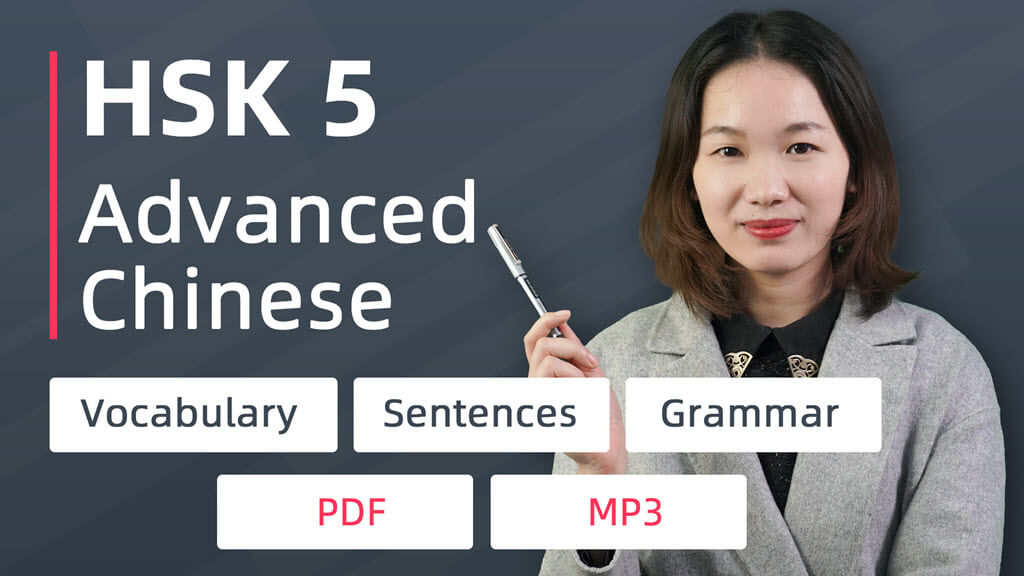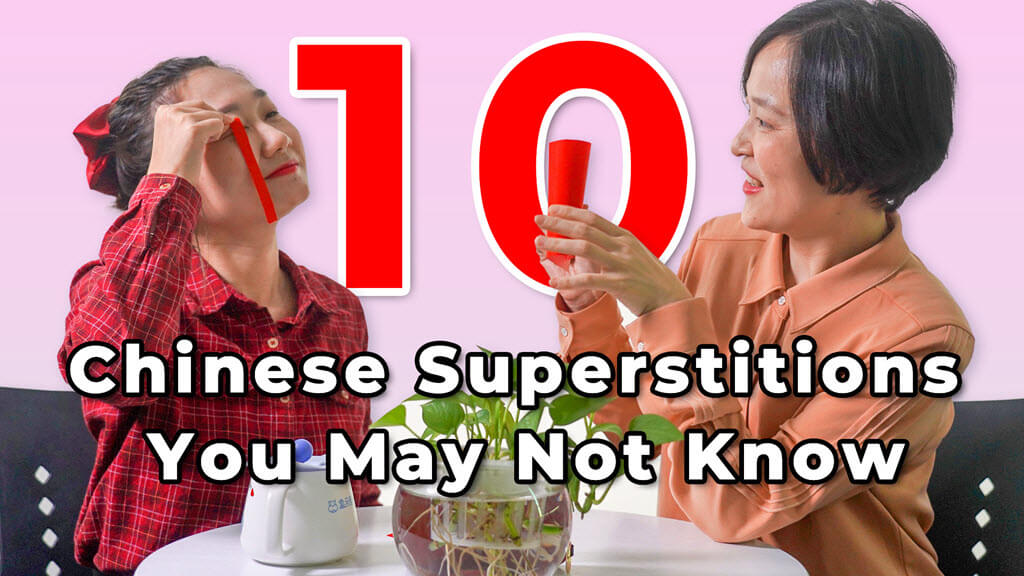One of the best ways to improve your Chinese greatly is to have a talk with native speakers. However, to start a conversation with a Chinese person, you should address him or her in the correct way. Successful communication often goes hand in hand with proper appellation, because people can judge whether you respect them or not from what you call them, thus affecting their impression of you. So, how do you choose the right way to address someone in Chinese? Read this article, and you will find some skills.
The one thing you’ve got to remember when addressing Chinese people is that it is impolite to call them by their full name. Whether on formal or informal occasions, try not to address someone by his or her full name, unless it is the superiors addressing the subordinates or the elders addressing the juniors. Since you can’t call others by the full name, what should you call them? Don’t worry. Keep reading.
1. Call Someone’s First Name or Nickname
The format of Chinese name is surname + first name, for example, 李小芳(Lǐ Xiǎo fāng). We usually address friends in Chinese by his or her first name omitting the surname. If we are close to each other, we may also call his or her childhood nickname. So, if you have a good relationship with 李小芳(Lǐ Xiǎofāng), you can call her 小芳(Xiǎo fāng) or 芳芳(Fāngfang).
2. 老(lǎo, old)/小(xiǎo, little) + Surname
For friends, neighbors and acquaintance, we can address them by adding “老(lǎo, old)” or “小(xiǎo, little)” before their surnames, such as 老李(Lǎo Lǐ), 老王(Lǎo Wáng), 小张(Xiǎo Zhāng), 小赵(Xiǎo Zhào) and so on. The usage of “老(lǎo)” and “小(xiǎo)” depends on the age of the person being addressed. You can use 老(lǎo)+ surname to address those who are older than you to show respect. 小(xiǎo)+ surname is used to call those who are younger than you.
3. Use Chinese Kinship Titles
Sometimes, to get closer to the stranger you are communicating with, you can use kinship terms to address him or her. The common kinfolk appellation words are 爷(yé), 伯(bó), 叔(shū), 婶(shěn), 娘(niáng), 姨(yí), 哥(gē), 弟(dì), 姐(jiě), 妹(mèi), etc. You can address people with different appellation words based on their gender and age. Here are some common terms.
老爷爷 lǎo yéye old grandpa; 老奶奶 lǎo nǎinai old granny
老爷爷(lǎo yéye) is one’s great-grandpa in English and 老奶奶(lǎo nǎinai) is one’s great-grandma. In Chinese, 老爷爷(lǎo yé ye) is an honorific title used to address an old man and 老奶奶(lǎo nǎinai) is used to address an old woman. Sometimes we will omit the character “老(lǎo)”.
大爷/大伯/大叔 dà ye / dà bó / dà shū Uncle
All these three words can be used to address a man of our father’s generation. 大爷(dà ye) is a respectful title for the elderly male elders who is above 60 years old. Please note that “爷(ye)” is pronounced in neutral tone here. If you pronounce it as “yé”, its meaning will be different. 大伯(dà bó) means one’s father’s eldest brother. It can also be used to address an older man respectfully. 叔(shū) means one’s father’s younger brother. We use it to refer to a man who is a little younger than our father. Here 大(dà) is used as an honorific modifier showing respect and can be omitted.
大娘/大妈/大婶/阿姨 dà niáng / dà mā / dà shěn / ā’yí Aunt
These four words are equivalent to the English word “aunt”. They are all used to address those middle-aged married women, but that doesn’t mean you can mix them. 大娘(dà niáng) or 大妈(dà mā) is a form of address for an elderly married woman. 姨 refers to mother’s sister, and 婶(shěn) refers to uncle’s wife. 阿姨(ā’yí) and 大婶(dà shěn) are both terms for women who are of the same age as one’s mother. But we use 阿姨(ā’yí) more often than 大婶(dà shěn), because many people think the latter sounds older.
哥 gē Elder brother
哥(gē) is elder brother in English. In spoken Chinese, it is an friendly term for men of our own age. You can add the character “大(dà)” before “哥(gē)”, that is, “大哥(dà gē)” to call a man a bit older than you to show respect. If you meet a young man who is handsome or fashionably dressed, you can call him小哥哥(xiǎo gēge).
姐 jiě Elder sister
姐(jiě) refers to the elder sister in a family. But we don’t use it to address women of our own age. It is usually a polite word to address a middle-aged woman. You can address a woman by adding her surname in front of “姐(jiě)”. But try not to add the character “大(dà)” before “姐(jiě)”.
小妹妹/小姐姐 xiǎo mèimei /xiǎo jiějie Little sister
These two are appellation words that have come into use in recent years. If you think a girl is younger than you, or she looks cute, you can call her 小妹妹(xiǎo mèimei). If a girl is fashionably dressed, you can call her 小姐姐(xiǎo jiějie).
姑娘 gūniang Lassie
You can call an unmarried young woman “姑娘(gūniang)”. It is more commonly used in northern China.
美女 měinǚ Beauty; 帅哥 shuàigē Handsome boy
You can use these two words to address strange young men or women when you have something to ask them, for example, asking for directions or calling the waiter. If you are speaking to a man, you can call him “帅哥(shuài gē)”; if you are speaking to a woman, you can call her “美女(měi nǚ)”. In Guangdong, you can also use “靓妹(liàng mèi, beauty)” and “靓仔(liàng zǎi, handsome boy)” instead of “美女(měi nǚ)” and “帅哥(shuài gē)”.
小朋友 xiǎo péngyou Children
For children you are not familiar with, you can call them 小朋友(xiǎo péngyou).
Note: Remember that you should call people as young as possible, because no one likes to be called old. You can address a married woman小姐姐(xiǎo jiějie) or 姑娘(gū niang), but never address an unmarried woman 阿姨(ā’yí) or 大姐(dà jiě). Of course, don’t go too far, or you will leave the impression of hypocrisy.
4. Mr., Mrs., Ms and Miss in Chinese
In English, people use Mr + last name to call any man, Mrs + last name to call a married woman who uses her husband’s last name and Miss + last name to call an unmarried woman. Ms + last name is used to call a married or unmarried woman in business. Actually, these appellation words have corresponding expressions in Chinese.
Mr. - 先生 xiānsheng
先生(xiān sheng) literally means someone who was born earlier. Now it is a respectful way to address a male. Some women will use 先生(xiānsheng) to refer to their husbands. For women who are highly respected or have made outstanding contributions, we also call them 先生(xiānsheng).
Mrs. - 太太/夫人 tàitai / fūrén
太太(tàitai) or 夫人(fūrén) is a respectful title for married women. They are also used to refer to one’s wife.
Ms. - 女士 nǚshì
女士(nǚshì) can be use to address a female, whether she is married or not.
Miss - 小姐 xiǎojiě
小姐(xiǎojiě) is used to refer to the daughter of a wealthy families in the old days. Now it is an honorific title for addressing unmarried woman on formal occasions. However, in recent years, 小姐(xiǎojiě) has been widely used to refer to female sex workers. So, if you call an unmarried woman 小姐(xiǎojiě), she may get angry. The best solution is to add her surname before 小姐(xiǎojiě), for example, 李小姐(Lǐ xiǎojiě).
Note that for all of these terms in Chinese, the surname should be placed before, for example, 方先生(Fāng xiānsheng), 吴太太(Wú tàitai), 王女士(Wáng nǚshì), and 刘小姐(Liú xiǎojiě).
5. Address Someone by Occupation
For some people who are engaged in work with higher status, we can address them by their professional titles out of respect for their occupation and labor. Let’s look at some examples.
老师 lǎoshī Teacher
教授 jiàoshòu Professor
医生 yīshēng Doctor
护士 hùshì Nurse
会计 kuàijì Accountant
编辑 biānjí Editor
律师 lǜshī Lawer
You can add someone’s surname before these professional titles, for example, 李老师(Lǐ lǎoshī) and 张会计( Zhāng kuàjì).
6. Address someone by Position
For people who hold high positions in the government or commercial enterprises, it’s common practice to address them by their positions to highlight their identity and status. Here are some common positions.
市长 shìzhǎng Mayor
局长 júzhǎng Director of a bureau
主任 zhǔrèn Director
主管 zhǔguǎn Section chief
董事 dǒngshì Chairman of the board
经理 jīnglǐ Manager
总监 zǒngjiān Majordomo
Note that for people holding deputy positions, such as 副市长(fù shìzhǎng, deputy mayor) or 副主任(fù zhǔrèn, deputy director), you can just call them 市长(shìzhǎng) or 主任(zhǔrèn) to show your respect. “副(fù, deputy)” can be omitted in some cases, unless you need to specify someone.
7. The Use of 师傅(shīfu)
The title “师傅(shīfu)” has many different uses. The most common one is that we can use it to address blue-collar workers like bus drivers, cab drivers, craftsmen and repairmen. We also respectfully address an authority or skilled person in a profession as 师傅(shīfu). Besides, it is also an honorific title for monks or nuns.
For example,
师傅,到前面路口停。
Shifu(cab driver), please pull over at the intersection up ahead.
师傅,门修好了吗?
Shifu(repairman), have you fixed the door yet?
Conclusion
These are all the Chinese appellations we have collected which you can use to address different people. These titles should be used according to people and occasions. It doesn’t matter if you haven’t mastered them yet. Get in touch with Chinese people more, and you can learn these words before you know it. What are the appellation words in your culture? Is the appellation in your language very different from that in Chinese? Please share with us in the comments.





Comments